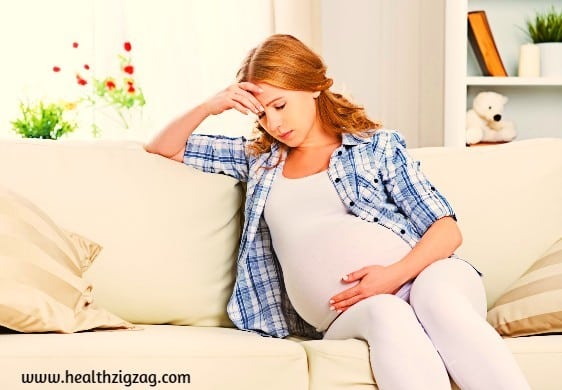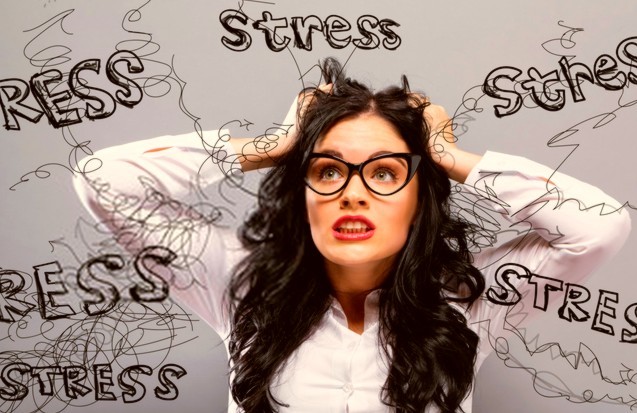
Contents
Depression and anxiety during pregnancy and after childbirth: frequently asked questions
Depression and anxiety that appear during pregnancy or at any time during the first year after the birth of your baby are medical conditions. These feelings are not something you caused by doing or not doing something. And they can be treated if you seek help.
What are depression and anxiety?
Depression (feeling of sadness, emptiness or discouragement) and anxiety (feeling of nervousness, anguish or fear) are serious medical conditions that affect the brain and can occur during pregnancy or after childbirth. These feelings go beyond what people can feel when they have a bad day or are nervous about a future event. They are also more serious than “being in a bad mood” or “having postpartum melancholy.”
Depression and anxiety can interfere with the way you do everyday things like taking care of yourself and your baby. They last a long time and do not leave on their own. But they are treatable, and that’s why you must get help.
Read Also: 10 negative effects of stress on your health
Are we talking about postpartum depression?
Postpartum depression is one of the names you may hear to name the depression and anxiety that may occur during and after pregnancy. But it may not be the best way to describe what women feel. The word “postpartum” means “after childbirth,” so “postpartum depression” only refers to depression that occurs after the baby is born. For many women, this expression is correct: they begin to feel depression at some point in the first year after childbirth.
Read Also: Pregnancy: stop swollen legs and fluid retention
But research shows that some women begin to feel depressed during pregnancy.
You may hear the expression ” perinatal depression ” to describe this situation. The word “perinatal” describes the time during which the pregnancy passes or just after delivery. Researchers believe that depression is one of the most mutual problems women experience during pregnancy.
Now we know that it is possible that women also suffer from anxiety in the pregnancy stage beyond the simple nerves of having a baby. Anxiety during and after pregnancy is as common as depression and can even occur both at the same time. Therefore, you may also hear ” perinatal depression and anxiety ” or ” perinatal mood and anxiety disorders ” that are used to describe everything women might feel. No matter how you name them, depression and anxiety that appear during pregnancy or after childbirth are real medical conditions and affect many women.
What are some signs of depression and anxiety?

Women with depression or anxiety related to pregnancy tell us they feel:
- Extreme sadness or anger without warning.
- Confused (dull) or have trouble completing work.
- “Robotic” feeling, as if they were doing things automatically.
- A lot of anxiety about the baby and his other children.
- Guilt and feeling of failing as mothers.
- Unusual irritation or anger.
They often also have:
- Little interest in things they used to like.
- Negative thoughts that frighten and don’t disappear.
What are the risk factors for depression and anxiety during pregnancy and after delivery?
Depression and anxiety during pregnancy and after childbirth can happen to anyone. However, several factors make some women more likely than others to suffer from one of these conditions or both.
These risk factors include:
- History of anxiety or depression, either during pregnancy or at other times.
- Family history of depression or anxiety.
- A complicated pregnancy or difficult birth.
- Birth of twins or other multiple births.
- Problems in the relationship.
- Economic problems.
- Little or no support from family or friends to help take care of your baby.
- Unplanned pregnancy
Depression and anxiety during pregnancy and after childbirth do not occur because of something you do or don’t do: they are medical conditions. While the causes of these conditions are not fully understood, researchers believe that depression and anxiety during this time could be the result of a mixture of physical, emotional and environmental factors.
Read Also: Can I still get pregnant with Endometriosis?
Can depression and anxiety during pregnancy and after childbirth affect my baby?
Yes. These medical conditions can affect your baby, although not directly. Early formation of the bond between mother and child is important for the development of the baby, and strengthening ties with your baby is a large part of that bond. When you have depression or anxiety during pregnancy or after delivery, it can be difficult to strengthen ties with your baby. You may not be able to respond to your baby’s needs. And, if there are older children in the house, they probably also lack their support.
Early treatment is important for you, your baby and the rest of the family. The sooner you start, the faster you begin to feel better.
Read Also: How To Have Sex During Pregnancy? : Ways and Risks
Are there treatments for depression or anxiety during pregnancy or after delivery?
Yes, there are treatments and they can help you feel better. Treatment can reduce symptoms or eliminate them. There are many treatment options available for depression or anxiety during pregnancy or after delivery. Some women get counseling (psychotherapy), others may need medication.
Your provider is likely to ask you several questions; That is called evaluation, and it is to know more about what you are feeling. Together they can find the right treatment for you. Here are some treatments for depression or anxiety during pregnancy or after delivery.
Read Also: Low blood pressure during pregnancy
Orientation (psychotherapy)
Some women find it helpful to discuss their concerns or feelings with a mental health professional. Your professional can help you find ways to manage your feelings and make changes that help relieve depression or anxiety.
Medicines
Several medications can treat depression and anxiety effectively and are safe for pregnant women, breastfeeding mothers and their babies. Talk to a health care provider about the medications that may be right for you. You can also go to the Food and Drug Administration of the United States to investigate the drugs and their possible effects on a nursing baby.
Is there anything else I can do besides the treatment?
In addition to treatment, some things can make you feel better.
- Get in touch with other moms. Search for a group of moms in your community or on the internet. These groups can help you find out what other women say they are going through or have already gone through the same as you and to share their feelings. Postpartum Support International (PSI) can help you locate groups in your area. Postpartum Progress ® (in English) offers a private online community so you can contact other moms no matter where you live.
- Take time off for yourself. Do something for yourself, such as leaving home or taking a hot bath without interruption. If you can, ask your partner, a family member or a babysitter to take care of the baby periodically and go to visit a friend or make an errand.
- Do something you like. Whether listening to music, reading a book or watching one of your favorite movies, take some time each day to do something you like.
- Be realistic. You do not have to do everything. You don’t have to have a “perfect” house. Just do what you can do easily and leave the rest.
- Ask for help. Do not be afraid to ask for help from family and friends, either to take care of the baby or to do household chores.
- Rest when the baby rests. Sleep is as important to you as it is to the baby. Sleep when the baby sleeps, during naps and at night.
- Do not be alone. Find other adults, such as family and friends, who can comfort and accompany you. Occasionally plan a special time where you and your partner or so that you and a friend can be together.
Can I avoid depression or anxiety during pregnancy or after childbirth?
For now, a way to avoid depression or anxiety that occurs during pregnancy or after the birth of your baby is unknown. But knowing the signs and symptoms to be aware of during and after pregnancy can be very useful to prepare and seek help without delay.
Read Also: Why is obesity caused by stress?
What you can do:
- Find out if there are factors that put you at greater risk of depression and anxiety during pregnancy and after delivery.
- Talk to a health care provider about depression and anxiety about pregnancy and find out the things you should pay attention to.
- Learn as much as you can about pregnancy, childbirth, and motherhood to know what to expect.
- Set realistic expectations for both you and your family.
- In addition to getting treatment, do things that can help you feel better.
- Plan ahead. While pregnant, think about who can support and help you when your baby arrives. Talk to that person about the help you will need: that way you can both be prepared.
Remember that depression and anxiety that appear during pregnancy or after the birth of your baby are not things you cause: they are medical conditions that require medical attention.
Read Also: 10 Foods Against Stress




